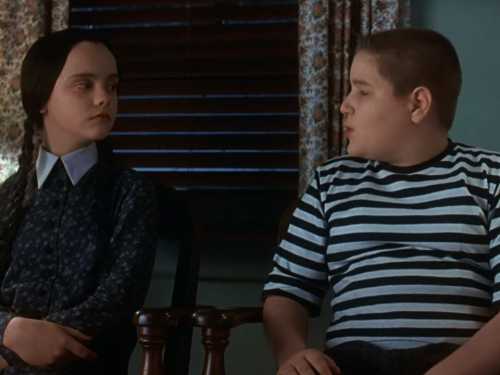
The conductor James Levine was fired from the Metropolitan Opera in 2018 following accusations that he had sexually abused four men—students of his—three of them when they were teen-agers. The conductor Charles Dutoit resigned his post with London’s Royal Philharmonic Orchestra that same year after he was accused of sexual assault by several women. (Both men denied the accusations.) In Todd Field’s film “Tár,” starring Cate Blanchett as an orchestra conductor named Lydia Tár, both men are mentioned, by an elderly male retired conductor, as objects of his sympathy. This peripheral character’s remark should hardly be taken for the writer and director’s point of view—except that the drama is centered on accusations of improprieties levied against Lydia and presents her as a victim. The movie scoots rapidly by the accusations that she faces; it blurs the details, eliminates the narratives, merely sketches hearings, leaves crucial events offscreen, and offers a calculated measure of doubt, in order to present her accusers as unhinged and hysterical and the protesters gathered against her as frantic and goofy. Moreover, it depicts her as the victim of another attack, one that is based on blatant falsehoods, but that, in the wake of the other accusations, gains traction in the media.
“Tár” is a regressive film that takes bitter aim at so-called cancel culture and lampoons so-called identity politics. It presents Lydia as an artist who fails to separate her private life from her professional one, who allows her sexual desires and personal relationships to influence her artistic judgment—which is, in turn, confirmed and even improved under that influence. It presents the efforts to expand the world of classical music to become more inclusive, by way of commissioning and presenting new music by a wider range of composers, as somewhere between a self-sacrificing gesture of charity and utterly pointless. It mocks the concept of the blind audition (intended to prevent gatekeeping conductors, musicians, and administrators from making decisions on the basis of appearance). It sneers at the presumption of an orchestra to self-govern (which the one that Lydia unmistakably conducts in the film, the Berlin Philharmonic, does in real life). It derisively portrays a young American conducting student named Max (Zethphan Smith-Gneist), who identifies “as a BIPOC pangender person,” and who says that he can’t take Bach seriously because he was a misogynist. The film looks at any social station and way of life besides the money-padded and the pristinely luxurious as cruddy, filthy, pathetic.
Lydia’s backstory—of a sanitized, résumé-like sort—is dispensed in the movie’s first long scene, a New Yorker-centric one, featuring my colleague Adam Gopnik, as himself, interviewing Lydia on stage for The New Yorker Festival. He introduces her by way of a litany of her achievements: conducting posts with the great orchestras of Cleveland, Philadelphia, Chicago, Boston, and New York, a background in ethnomusicology and the music of Indigenous peoples, a repertory that involves commissioning music from female composers and performing it alongside venerable classical works, even an EGOT. As Gopnik recites her bona fides, her assistant, Francesca (Noémie Merlant), who obviously compiled them, silently lip-synchs along offstage.
Lydia is married to Sharon Goodnow (Nina Hoss), the orchestra’s concertmaster, a relationship that began around the time of Lydia’s appointment to the group’s leadership. They live, with their young daughter, Petra (Mila Bogojevic), in a Brutalist apartment of a pristine monumentality (though Lydia keeps her old place, in an old building, to work in). Lydia is the co-founder of a program to mentor aspiring young female conductors. Francesca, one of her former students, works tirelessly as Lydia’s factotum, amanuensis, and personal assistant, in the expectation of becoming her assistant conductor in Berlin. Another former student, Krista Taylor (Sylvia Flote), is seemingly stalking Lydia, who has meanwhile been thwarting Krista’s career by dissuading orchestra administrators from hiring her. There’s the hint that Lydia had had sexual relationships with both Francesca and Krista—but only a hint, and enough calculated vagueness to leave viewers debating in the lobby.
“Tár” is a useful reminder of the connection between regressive ideas and regressive aesthetics. It’s also a useful illustration of the fact that there is no such thing as “the story,” no preëxisting set of events that inherently define a character’s life, rise, or fall. This movie, launching the action with the barest of hints that Krista is the bringer of trouble to paradise, does almost as good a job at effacing the specifics of whatever may have gone on between them as Lydia herself does of deleting Krista’s incriminating e-mails. (One hint of the nature of their relationship is an anonymous gift—a signed copy of Vita Sackville-West’s novel “Challenge,” based on the author’s romantic relationship with a woman who attempts to die by suicide—that Lydia tears and discards.)
The movie takes the point of view of Lydia throughout. She has lived for so long in the world of private jets and private foundations that anything else seems like a dreadful comedown. It identifies so closely with her perspective that it even depicts several of her dreams—yet, despite getting inside her head, Field can’t be bothered to show what she knows of her relationships with two of the key characters in the film; he doesn’t convey what Lydia knows of her ostensible misdeeds, whether with flashbacks, internal monologues, or the details of investigations. The film seems to want it both ways: it sustains Lydia’s perspective regarding music, her professional relationships, and her daily aesthetic, while carefully cultivating ambiguity regarding what Lydia is charged with, in order to wag a finger at characters who rush to judgment on the basis of what’s shown (or, what isn’t). By eliminating the accusations, Field shows which narrative he finds significant enough to put onscreen. By filtering Lydia’s cinematic subjectivity to include disturbing dreams but not disturbing memories, he shows what aspect of her character truly interests him. By allowing her past to be defined by her résumé, he shows that he, too, is wowed by it and has little interest in seeing past it.
This movie about an artist’s life and work is, for the most part, utterly unilluminating about the music on which it’s centered. It delivers a few superficial details regarding Lydia’s effort to interpret the piece at the core of the film, Mahler’s Fifth Symphony, in terms of the composer’s biography. As for new music, Lydia may commission it and conduct it, she may exhort Max to discover the feelings in it, but the movie never shows what Lydia herself does with it or finds in it. The best moments in the film are the few, of a quasi-documentary import, in which Lydia, in rehearsal with the orchestra, exhorts and directs the musicians in fine points of phrasing and other expressive details.
Yet the music itself is filmed with an absence of style. Not a single image of the orchestra at work has a visual melody or a contrapuntal density, and the filming of performance seems borrowed from any DVD of a symphony orchestra. (By contrast, see Edgar Ulmer’s filming of the real-life conductor Leopold Stokowski and the musicians of his orchestra in the 1947 film “Carnegie Hall.”) The conducting gestures that Lydia makes, her expressions while conducting, are laughable, not because Blanchett’s performance is in any way ridiculous but because Field’s awkward, lumpish images make it appear so. In a climactic scene, in which Lydia gives vent to her largely stifled rage against her perceived persecution, she emerges from the wings of the Berlin Philharmonic’s concert hall to the sound of the opening trumpet call of Mahler’s Fifth, which Field turns into the equivalent of a baseball player’s walk-on music.
The movie is no less obtuse regarding the artistic side of the power plays and the personal relationships that go into the making of music. A young cellist, Olga Metkina (Sophie Kauer), whom Lydia chooses on the basis of attraction to her, in stealthy defiance of the blind audition, turns out to be a gifted musician whose particular talents Lydia pushes to the fore (with a planned performance of Elgar’s Cello Concerto). Far from alienating the somewhat bewildered orchestra, Olga soon wins their admiration. Moreover, the prime beneficiary of the accusations against Lydia (significantly, relegated to the gossipy New York Post) is a conductor of lesser talent, a boardroom-friendly art bureaucrat (and a funder of her mentorship program), Elliot Kaplan (Mark Strong). The one moving aspect of the offstage lives of musicians involves the fear of exposure that queer musicians endured, the deformation of their private lives by the pressure to maintain secrecy, and Lydia’s confession about the career-threatening troubles that she and Sharon endured when they made their relationship public. Yet, at the same time, Field has the chutzpah to liken today’s #MeToo era—in which, one character claims, to be accused is to be considered guilty—to the supposed excesses and false accusations of Germany’s postwar period of de-Nazification.
The careful ambiguities of “Tár” offer a sort of plausible deniability to its relentlessly conservative button-pushing, and its aesthetic is no less regressive, conservative, and narrow. The film is constructed as a series of scenes that cut from one place to another, even jumping ahead just a few minutes or hours, and the characterization of Lydia Tár is similarly disjointed. Blanchett’s performance doesn’t suffice: she incarnates each moment sharply and emphatically but, despite her supremely skillful exertions, Field doesn’t forge dramatic unity. The movie is a slew of illustrated plot points and talking points but, between the shots and the slogans, neither its protagonist nor its world seems to exist at all. “Tár” digests great art, and high-flown talk about it, into a smooth and superficial package. It’s as far from the great art of movies as most movie scores are from a Mahler symphony. ♦
Sourse: newyorker.com






